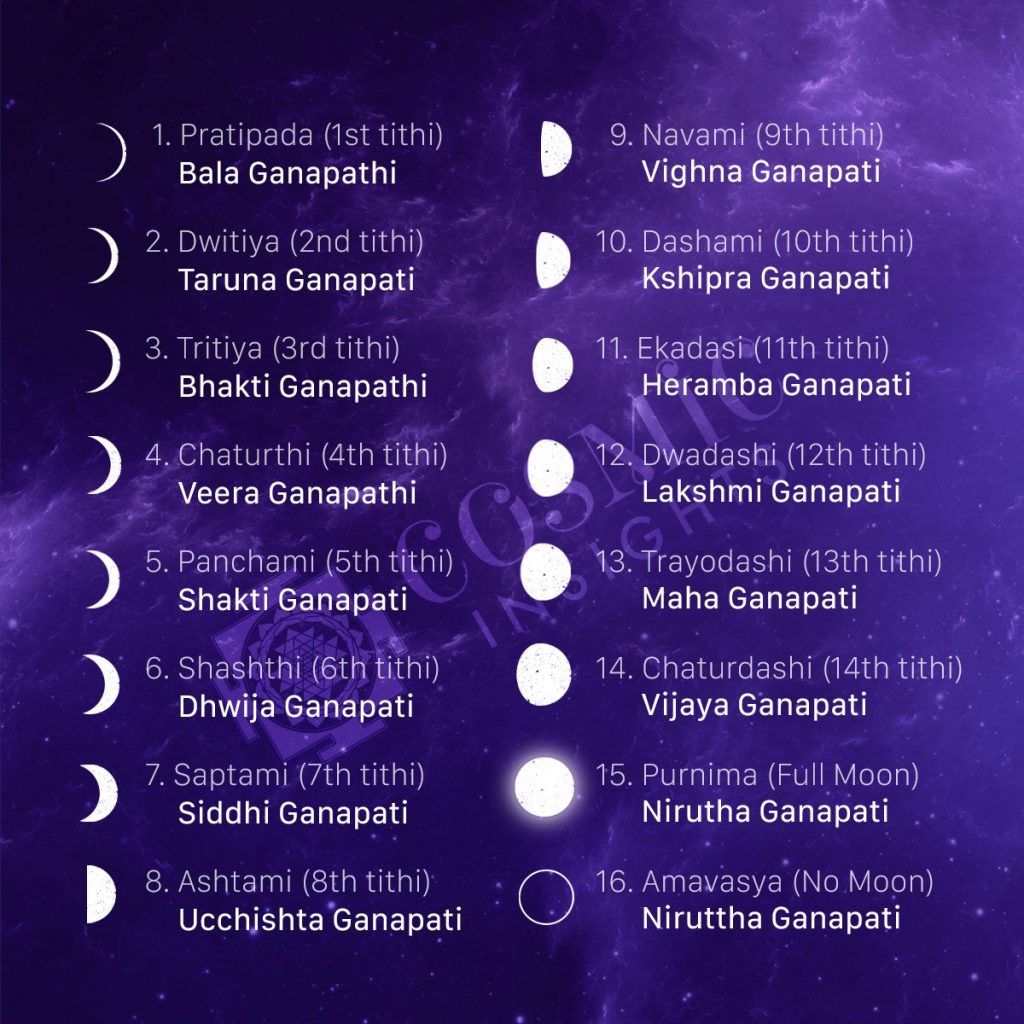What actually tithi means ?
Tithi is a term in Vedic astrology that refers to the lunar phase of the moon. There are 15 Tithis in a lunar month, which can be divided into two cycles: Shukla Paksha (Waxing Cycle) and Krishna Paksha (Waning Cycle). Each Tithi is ruled by a specific deity and has its own auspicious and inauspicious times for different activities such as marriage, construction, spiritual practices, and more. It is believed that choosing the right Tithi can help bring positive energy to your endeavors.
waning cycle of Tithi in Vedic astrology
In the waning cycle of Tithi in Vedic astrology, the days and their respective ruling deities are as follows:
1st Waning (Krishna Pratipada) ruled by Durga, good for planning for projects and medical procedures, not good for any auspicious events.
2nd Waning (Krishna Dwatiya) ruled by Vayu, God of the wind, good for construction of buildings and pilgrimage.
3rd Waning (Krishna Tritiya) ruled by Agni, God of fire, good for construction and artistic activities.
4th Waning (Krishna Chaturthi) ruled by Ganesha, good for removing obstacles, not auspicious for sacred ceremonies.
5th Waning (Krishna Panchami) ruled by the Serpent deities, Nagas, good for spiritual practices and pilgrimage.
6th Waning (Krishna Shasti) ruled by Skanda, good for peace and tranquility.
7th Waning (Krishna Saptami) ruled by Surya, the Sun God, good for studying and acquiring knowledge.
8th Waning (Krishna Ashtami) ruled by Durga, not good for most activities, except for ancestor worship.
9th Waning (Krishna Navami) ruled by Saraswati, good for memory, knowledge and speech.
10th Waning (Krishna Dashami) ruled by Veerabhadra, the general of Shiva’s army, and the God of Dharma, good for meditation, yoga and spiritual pursuits.
11th Waning (Krishna Ekadashi) ruled by Vishnu, good for charity, acts of kindness and religious pursuits.
12th Waning (Krishna Dwadashi) ruled by Vishnu, good for performing spiritual practices, donating money and fasting.
13th Waning (Krishna Trayodashi) ruled by Shiva and Kamadeva, good for performing spiritual practices, rituals for spiritual liberation and yoga.
14th Waning (Krishna Chaturdashi) ruled by Rudra, an ancient and fierce form of Shiva, good for worship to this God.
15th Waning (Amavasya, or New Moon) ruled by Lord Shiva and auspicious for spiritual practices, offering prayers and performing rituals.
In conclusion, Tithi plays an important role in Vedic astrology as it represents the lunar phase in the Hindu calendar. Each Tithi has its own unique qualities and influences, which are taken into consideration while making astrological predictions and assessing an individual’s horoscope. Tithi is also used to determine auspicious times for important events, such as weddings and religious ceremonies. Understanding the significance of Tithi can deepen one’s knowledge and understanding of Vedic astrology.




